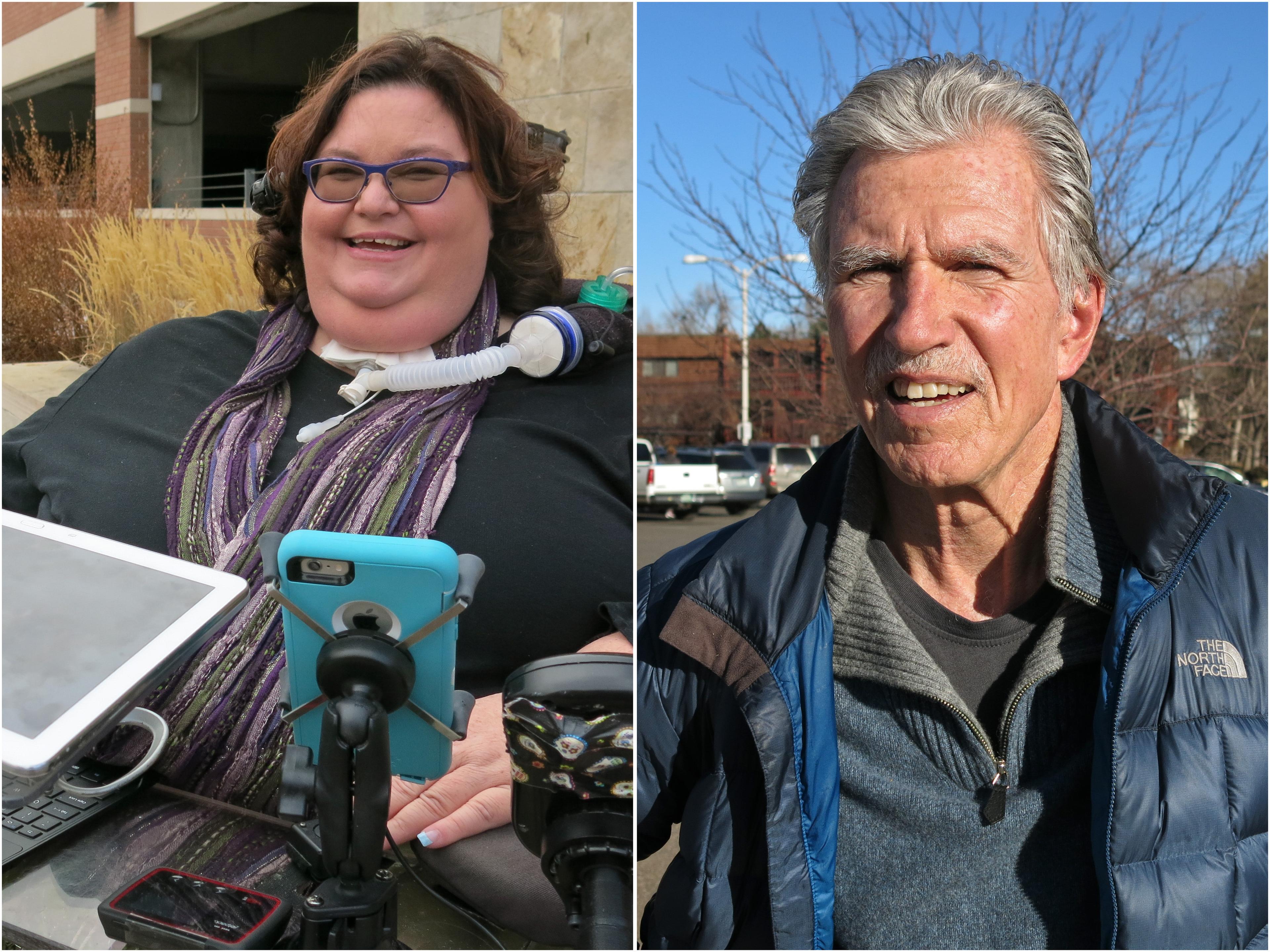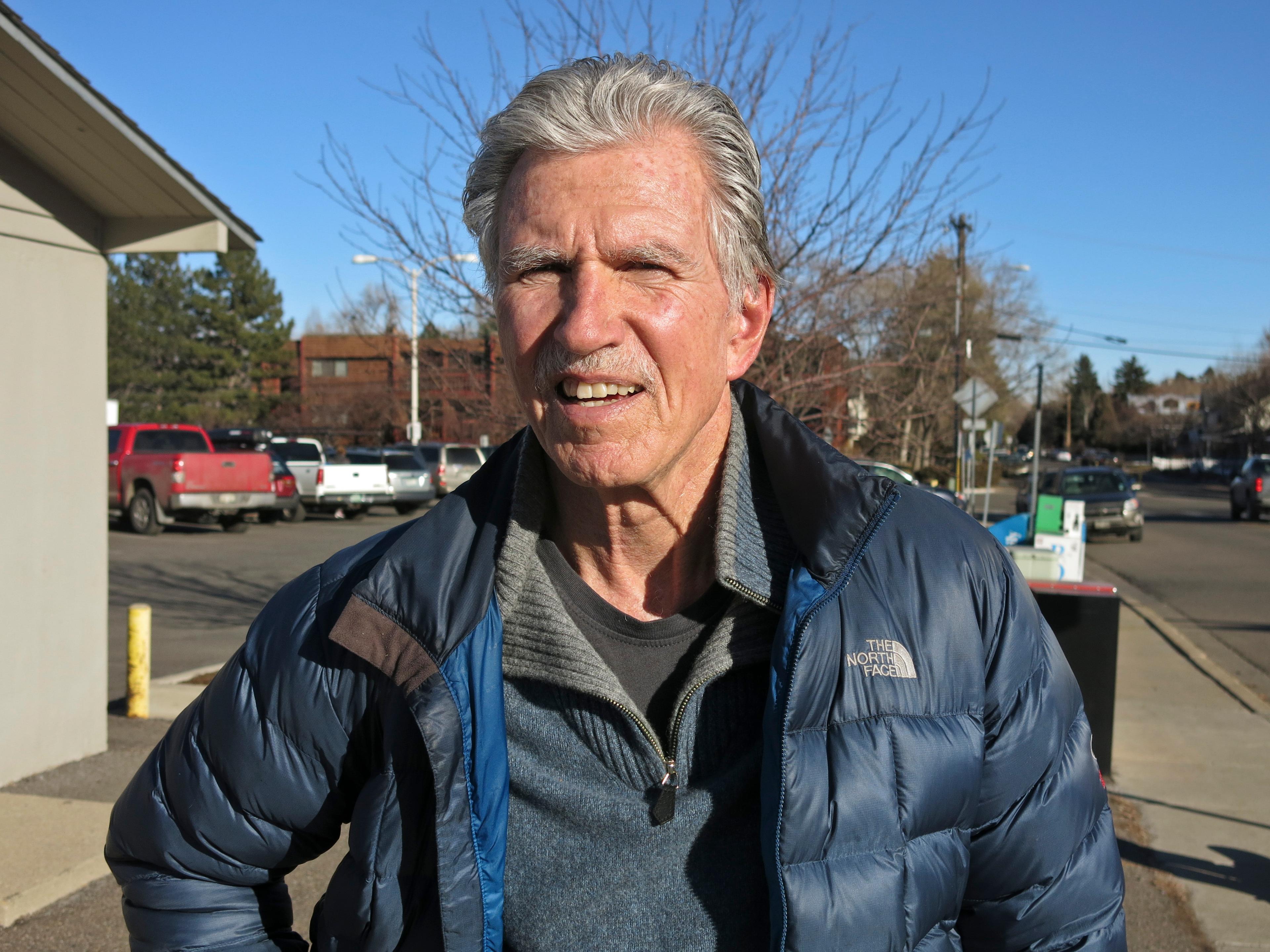

“People have quipped that they are not afraid of death," said Hibbard. "They’re just afraid of what’s going to happen along the way, which can be pretty horrendous.”
Hibbard believes people deserve a “good death,” which ideally is at home, surrounded by loved ones and relatively pain free. He says that’s why he backs the “End of Life Options Act.” If passed, an terminally ill adult Coloradan, with less that six months to live, could ask for a lethal medication from their doctor. Hibbard points out they would have take the drug themselves.
“There is no one who is spoon feeding them or giving them a shot or anything like that," Hibbard said.
They must also be mentally capable; those with Alzheimer’s or dementia would be ineligible. They’d need to make both oral and written requests, signed by at least two witnesses. At 78, Hibbard wants this option for himself someday.
“I think it would be tremendously helpful in reducing the amount of anxiety that I have," said Hibbard.
For others though, the bill creates anxiety.
“I really want them to focus on the risk this bill holds to vulnerable populations, disabled people in particular," said disabled rights advocate Carrie Ann Lucas, who has a progressive neuromuscular disease. It causes weakness throughout her body including her diaphragm, so she's been using a ventilator full time for almost 10 years.

Lucas believes the bill discriminates against the disabled, whose lives she says are often not valued. And she’s speaking out, not just for herself, but for her four disabled children.
She said her oldest daughter Heather, who is severely intellectually and physically disabled, recently had routine dental work and needed an anesthetic. Lucas says staff asked her if her daughter had a do not resuscitate order -- three times.
"She’s healthy, she’s 25," Lucas said she told the staff.
Lucas says she herself is expensive to keep alive. She worries that in a profit-driven health system, insurance companies will offer to pay for cheaper lethal prescriptions, rather than necessary medications or equipment.
“I think the way [the bill] is set up we will see people’s live lost through mistakes and abuse. And this is something that can’t be undone," Lucas said.
Lessons From Oregon
Assisted suicide is already legal in a handful of states including Washington, Vermont, and later this year, California. The state with the longest experience is Oregon, where it’s been legal for nearly two decades.
“I’m getting many more calls both from other states that have either considered it or passed it," said Dr. Katrina Hedberg, Oregon's State Health Officer. Her office has tracked the data since the Death with Dignity Act went in effect. She says there’s been a steady but small increase in participants.
“The vast majority of them have cancer," Hedberg said.
Almost 80 percent, to be exact. ALS patients make up about 8 percent. The rest suffer from things like respiratory and heart disease. The most recent annual numbers show 155 people were written prescriptions; 105 took them. That's out of roughly 35,000 deaths in Oregon a year, or about 0.3 percent, said Hedberg.
Hedberg says the average age was 70, and most were enrolled in hospice care. They tended to be white and often had college and advanced degrees. "I think it tends to be a pretty educated, assertive population about their health care in general," said Hedberg.
Hedberg says decisions seem to be driven by the person getting the prescription, not others.
“We’ve actually seen the opposite that family members when we’ve interviewed them said ‘we really don’t want our loved one to die, we want them to stay alive as long and possible,' " said Hedberg.
One area Hedberg says they could get a better handle on is screening for depression. A study published in the British Medical Journal in 2008 concluded that while most terminally ill Oregonians who received aid in dying weren’t depressed, the Death with Dignity Act may fail to protect some depressed patients. It’s this sort of thing that concerns Carrie Ann Lucas, the disabled rights advocate.
“A lot of people when faced with a devastating diagnosis could say 'that’s it. My life is over, I don’t want to face this going forward," and opt to end their lives when a referral to mental health treatment could help them, Lucas said.
Still, proponent David Hibbard is confident depressed patients will be protected under the measure.
"If there is any suspicion of that, you have to be referred for psychological counseling and to determine that you’re not depressed," said Hibbard.
Both Lucas and Hibbard are expected to testify on the bill this week.
Last year, a similar bill failed to get out of a committee. This year, it faces tall odds again.







